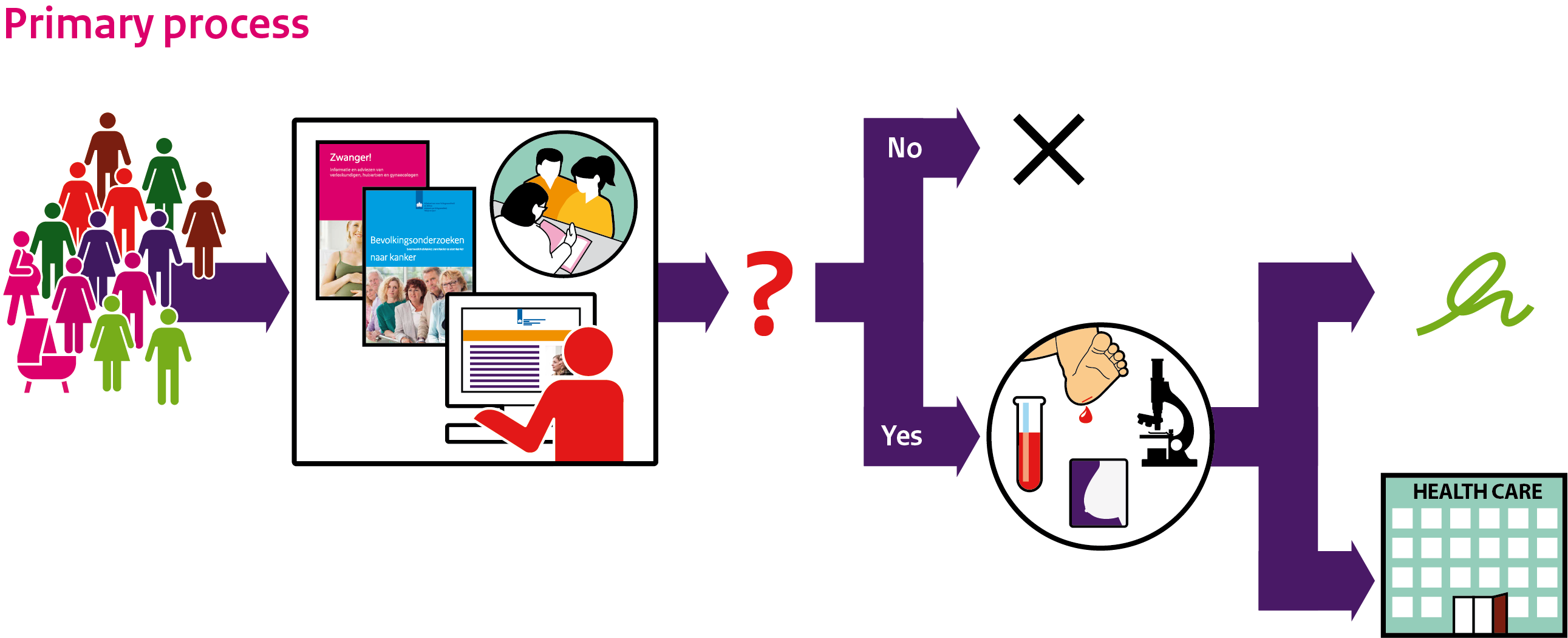Population screening in the Netherlands is not a standalone process, it is part of a care chain. The aim is to ensure that all parts of the healthcare chain are aligned. In particular, the transition from screening to further diagnostics (medical examination after abnormal finding) and treatment is an important step with joint responsibility for screening parties as well as care institutions. This not only requires optimum cooperation, but also timely identification and scheduling in the subsequent care process.
The screening starts with selecting and inviting the participants after which the screening takes place. The findings are communicated to the participant and with the receipt of the findings by the participant the screening process has ended. If the findings of the screening induce further diagnostics, possible treatment and control, the participant is referred to the care.
Informed decision
In the Netherlands making a well-informed decision about whether or not to participate in a screening is an important principle. People need information to be able to weigh the pros and cons of participation against each other. The final decision whether or not to participate must correspond to their norms and values. A lot of attention is given to ensuring that participants are well-informed and are able to base their choice on relevant knowledge. Therefore, the communication materials meet high requirements. The information must be up-to-date, honest, reliable, relevant and understandable and there should be no moral pressure to participate.
Therefore, the communication materials meet high requirements. The information must be up-to-date, honest, reliable, relevant and understandable and there should be no moral pressure to participate.
In the case of prenatal screening for Down’s, Edwards’ and Patau’s syndrome and the twenty-week ultrasound, counselling is offered to pregnant women and their partners who want to receive more information about the screenings. Counselling aims to inform expectant parents about the possibilities of screening and about their options in case an abnormal finding is detected. Counselling is meant to facilitate a well-informed choice.
